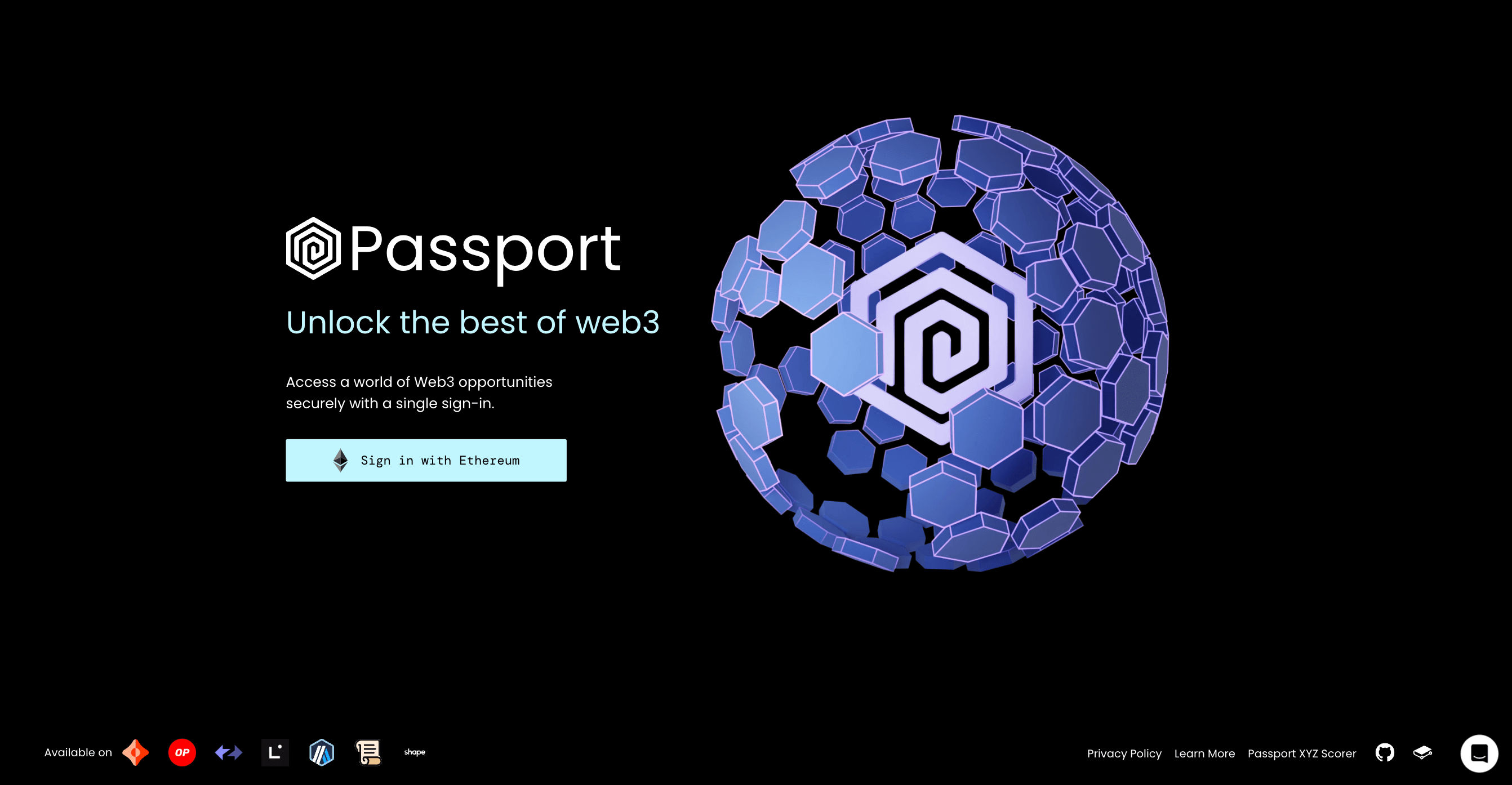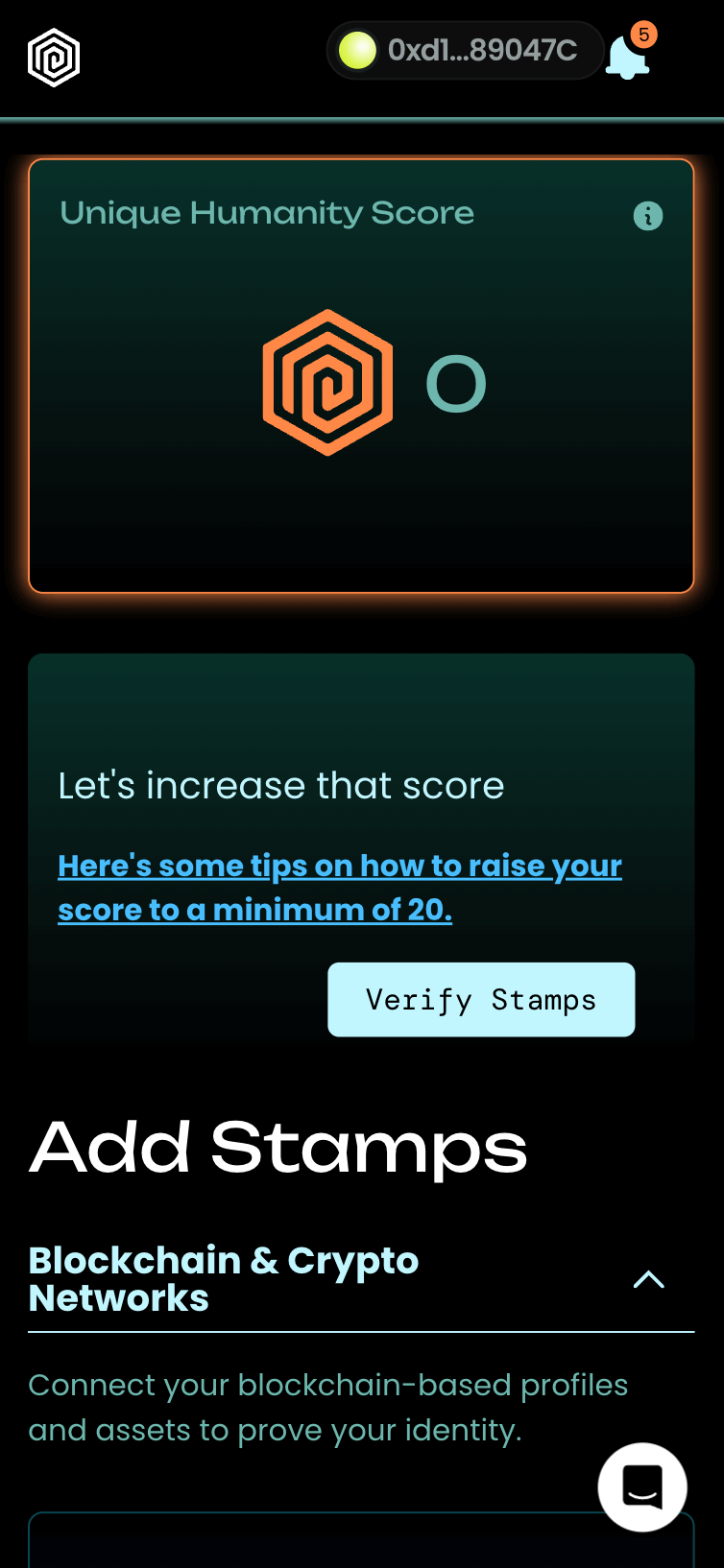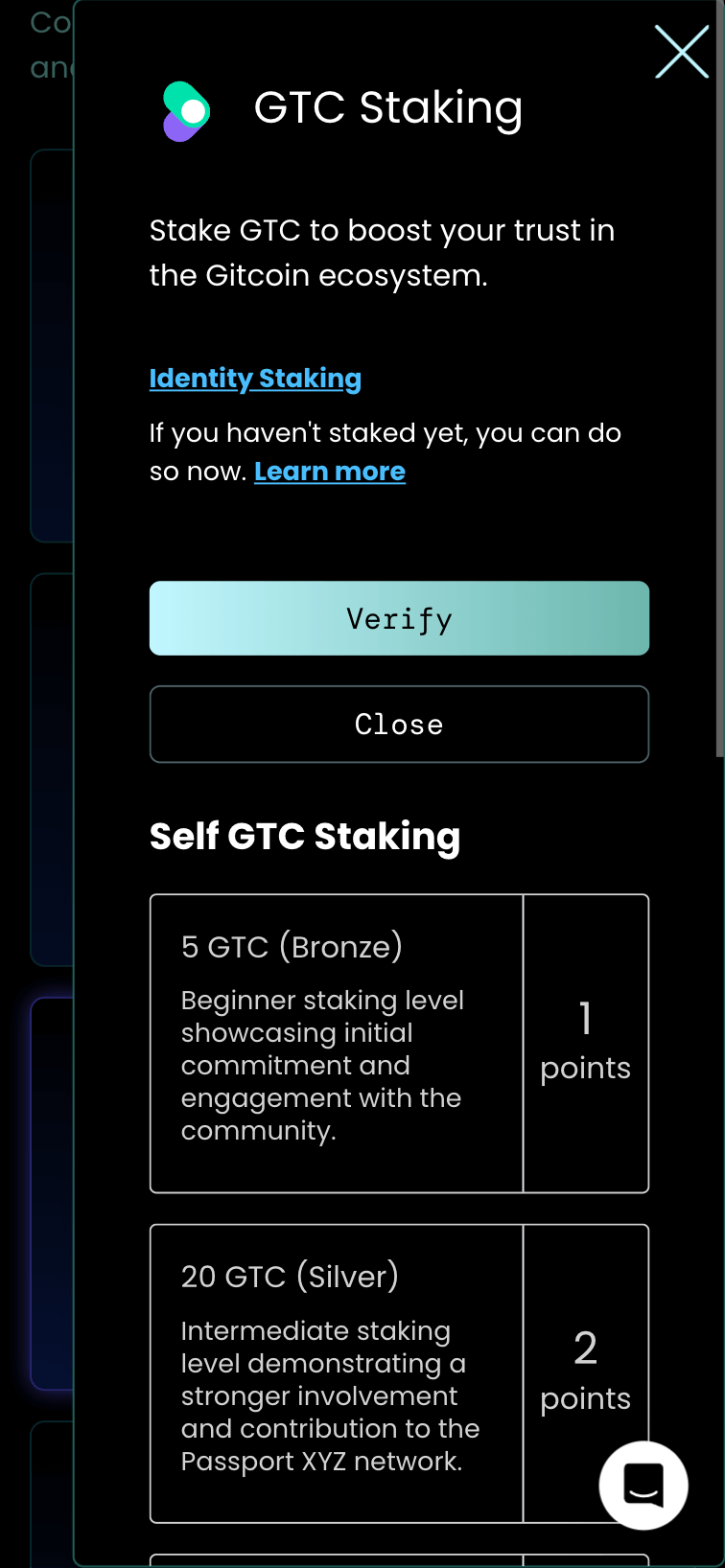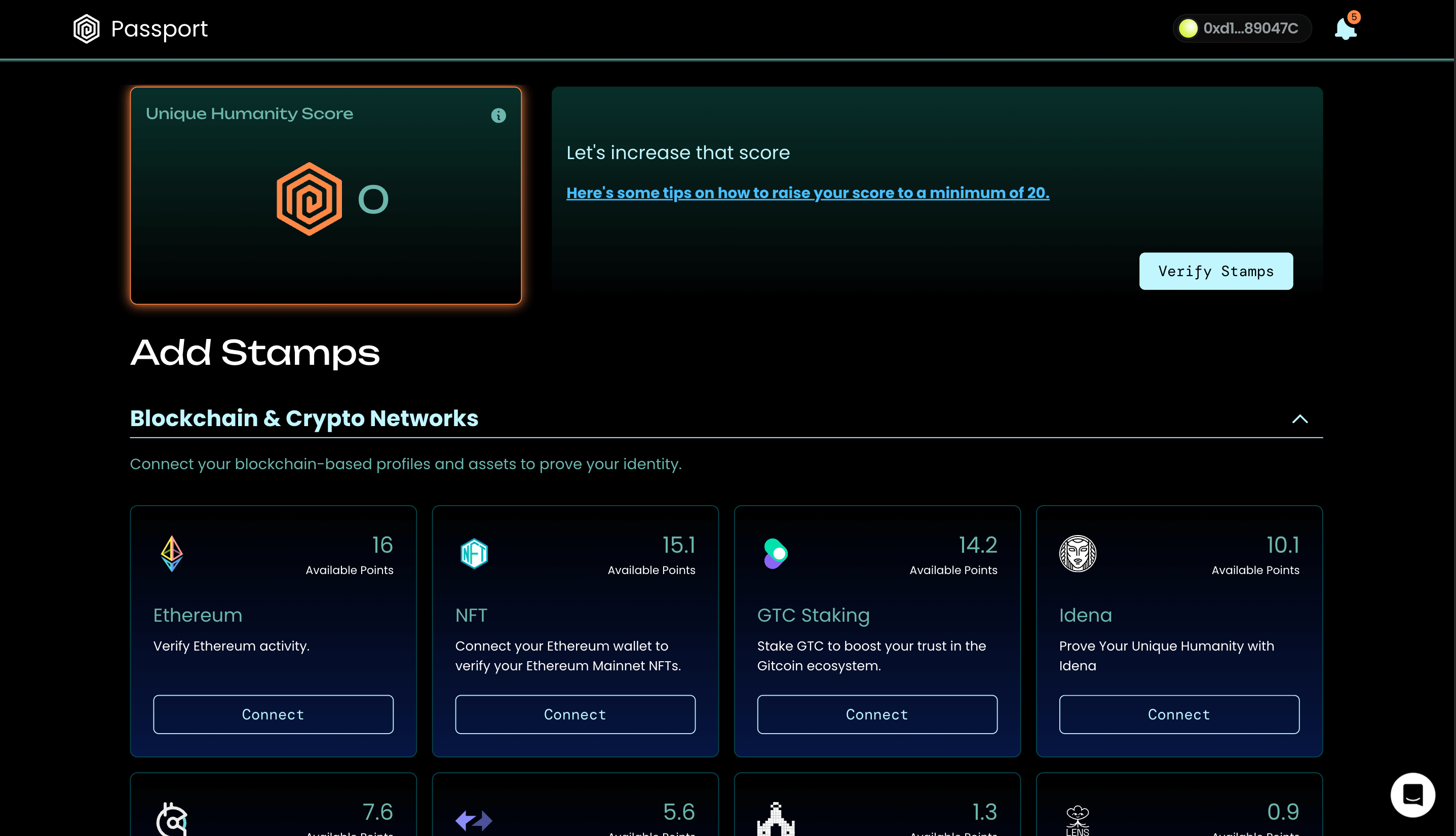Project Date: 2022-2023
Role: Individual Contributor
Website: Passport
Project Background
Passport (previously Gitcoin Passport) is an identity verification app designed to authenticate a user’s unique humanity by connecting to various platforms such as ENS, Ethereum, Coinbase, and GitHub. Each passport is tied to a user’s Ethereum address, with strict limitations allowing only one account per platform to be associated (e.g., one GitHub ID, one Coinbase ID). This approach ensures that users build a unique humanity score based on their activity and the credentials they accumulate, such as making commits to a GitHub repository over specific periods (e.g., 30, 60, 120 distinct days). The app's primary purpose is to prevent sybil activity, supporting trust and integrity in funding mechanisms like quadratic funding within the Allo protocol.

Project Goals
- Develop an identity verification tool that ties a user’s Ethereum address to unique platform accounts, preventing multi-account misuse.
- Create a system where users can build a comprehensive humanity score based on diverse credential verifications.
- Enhance the application’s security and integration with blockchain technology to ensure transparent and reliable verification.
- Improve user experience and streamline the process of acquiring and displaying 'stamps' that represent verified credentials.

Implementation
During my tenure as an individual contributor on the Passport team, I worked on enhancing and expanding the platform using a range of technologies, including Next.js, Chakra UI, Tailwind, TypeScript, and Solidity.One of my most intensive contributions was overhauling the organization of the 'stamps' visual markers that represent different verified identity credentials. This reorganization improved how users tracked their verification credentials and made the interface more intuitive.
The project also involved integrating multiple APIs to allow identity validation. By connecting with platforms like ENS, Ethereum, Coinbase, and GitHub, users could prove their identity through proof of account ownership, account creation dates, and other verification methods.
Additionally, I helped to implement significant design updates to enhance the user interface and improve overall user experience, ensuring that interactions were smooth and user-friendly.
A key part of the project was integrating blockchain technology to embed the passport onto a decentralized ledger. This step bolstered transparency and security, aligning with Passport’s mission to prevent sybil attacks and support trust-based mechanisms like the Allo protocol.



Challenges
A key challenge was maintaining seamless API integrations while ensuring that the identity verification process was secure, efficient, and user-friendly. Transitioning parts of the app onto the blockchain introduced complexities in preserving performance without sacrificing accessibility. Additionally, implementing a system where each user could only tie one account per platform to their Ethereum address required meticulous validation logic.
Outcome
The revamped Passport successfully achieved its goals by offering a secure and transparent identity verification solution tied to users’ Ethereum addresses. The unique humanity scoring system empowered users to demonstrate their credibility based on diverse credentials, reducing sybil activity and reinforcing the integrity of trust-based funding mechanisms.
The improvements made to the “stamp” system, along with blockchain integration and design enhancements, led to a more robust and user-friendly platform that met both functional and security standards.

Technologies
- Nextjs
- AWS
- Pulumi
- Chakra UI
- TypeScript
- Solidity
- Various Platform APIs
- Ethereum
- Polygon
- Ethereum Attestation Service (EAS)
Industry
Web3